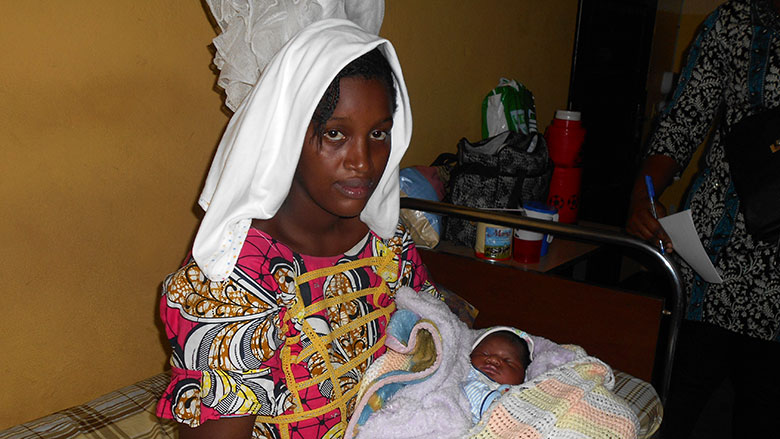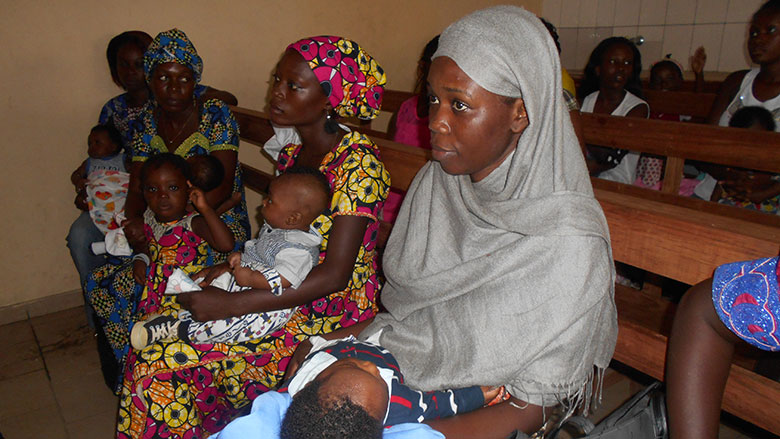POINTE-NOIRE, January 19, 2017—In the waiting room of the Saint-Joseph Integrated Health Care Center in Pointe-Noire, the economic capital of the Republic of Congo, ten mothers are sitting on a bench listening attentively to a midwife’s guidance on caring for their babies’ nutrition and immunization. “I really appreciate the cleanliness of the facility, the punctuality of care takers, and the openness and seriousness with which the staff care for their patients,” says Daïna Nkouka, a 25-year-old mother attending the early childhood class.
Like 37 other approved integrated health care centers in Pointe-Noire that are covered by the Second Health System Strengthening Project (PDSS II) financed by the World Bank, the Saint-Joseph center has adopted the performance-based financing (PBF) system. This system subsidizes health care structures according to the quantity and quality of the care they provide. For Dr. Jean-Michel Ndzodault, Health Director for the Pointe-Noire Department, “Performance-based financing is effective because it benefits the service regulator, health care personnel, and patients. This means it helps improve living conditions for the whole community.”
Since performance-based financing was introduced, patients have noticed significant improvements: service delivery is friendlier, treatments have improved, and information campaigns, such as the class Daïna is attending, have been expanded. “When I come to this center, I am confident that my day will not be disrupted and that I will pay the fees posted. In contrast, at other centers, you can waste a whole day, because the staff arrives late and ignores the patients, and the fees change all the time,” says Awa Dia, a young patient who gave birth at the “Le Bien-Être” or Wellness Integrated Health Care Center.


